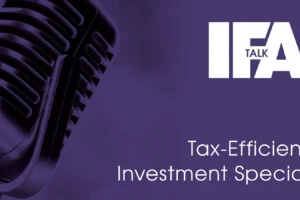Would they or wouldn’t they? 25 basis points or 50? Financial advisers (including those who are on holiday!) have been poised for the latest Bank of England MPC decision on UK interest rates which was released at midday today, 3rd August.
Market expectations from economists were that the Bank would opt for a 0.25% hike, up from 5% which was announced last month, to a new UK interest rate of 5.25%. With similar increases in rates in both the USA and Europe recently, the UK follows suit in pursuit of the target to bring sticky inflation under control and towards the BoE’s 2% target.
Today’s hike is the fourteenth consecutive interest rate rise from the MPC and brings interest rates to their highest level in the UK for fifteen years.
However, the impact of lags – especially given the increased penetration of fixed rate mortgages – and recent news of softening inflation and property prices – are causing many to worry that a recession, which has been narrowly avoided so far, may be just around the corner. Clearly there are particular concerns for the mortgage market as well as for investment managers. For financial advisers, there is much to consider as the prospect of slow/no growth, the cost of living crisis and pressure on the housing and mortgage markets continue to dominate.
Finance experts have been sharing their reaction to today’s interest rate news as follows:
Founder and CEO of My Community Finance, Tobias Gruber, said: “Although this hike in the base rate brings more misery for borrowers, it emerges as a silver lining for savers, providing banks swiftly pass on rates to their customers.
“Justifiably so, the FCA is piling on the pressure for high street banks to treat customers more fairly. It’s high time for banks to cease profiting from interest rate fluctuations while dragging their feet in extending these benefits to their customers.
“Savers should compare savings account options across various banks and financial institutions. Look for accounts that offer competitive interest rates and favourable terms to make the most of the current 15-year high-interest rates”.
Rachel Springall, Finance Expert at Moneyfactscompare.co.uk, said: “This latest base rate rise will come as disappointing news to borrowers worried about rising mortgage repayments. Those who still have a low-rate fixed mortgage would be wise to overpay where they can, with the aim of reducing their loan and the term of their mortgage. Interest rates on mortgages are much higher than some may realise, so borrowers will need to ensure they have surplus funds to meet higher repayments when they come off a lower rate deal.
“Consumers struggling with their outgoings amid the cost of living crisis, or who have become a ‘mortgage prisoner’, would be wise to seek independent advice to review their situation. Fixed rate mortgages, for two, five and 10-year terms are around 3% higher on average compared to December 2021 and the average Standard Variable Rate (SVR) has risen consecutively over the same period, so a fixed mortgage can give borrowers some peace of mind by securing their monthly repayment. A rate rise of 0.25% on the current average SVR of 7.85% would add approximately £794* onto total repayments over two years.“
Jatin Ondhia, CEO of Shojin, said: “It is more of the same for now, but there is a sense that we might be nearing the top of the interest rates mountain. Inflation is finally falling, with the next set of data on 16 August expected to show another notable decline. In turn, pressure will ease on the BoE, meaning it can slow or pause on its hiking of the base rate. All of this would allow for much-needed stability and hopefully a bit of confidence to return.
“Still, we cannot underestimate the implications of elevated borrowing costs across the property market. Homeowners are facing higher mortgage rates than at any point since the financial crisis, while developers are also finding it harder to access finance. Consumers, investors and businesses will all be hoping that we are nearing the end of this economic turbulence – higher interest rates are here to stay, but we undoubtedly need to arrive at a point where the base rate is not continuously rising, giving everyone the chance to take more confident action where their money is concerned.”
Lily Megson, Policy Director at My Pension Expert, said: “Another interest rate hike means more pain for borrowers, but it ought to come as good news for savers. Yet ‘ought’ is the imperative word here. Sadly, despite the Bank of England pushing the base rate higher and higher in its fight against inflation, many high street banks are continuing to fail to pass on these advantages to their customers. This is deeply disappointing, adding to the financial strain on savers in the midst of a cost-of-living crisis that is far from over.
“The Financial Conduct Authority is right to scrutinise the banks for not passing on better rates, and action cannot come fast enough. Britons need all the support they can get in the current economic climate, which is making financial planning very challenging. However, banks’ interest rates are just one area where change is needed. It is important that customers feel supported and empowered to make more informed decisions. Making information regarding savings or investment options available would be a step in the right direction. So too would be improving access to affordable advice.
“Now more than ever, it is crucial for banks and the wider financial services industry to prioritise consumers’ interests and uphold regulatory, ethical and moral commitments to putting consumers first. By doing so, they can regain trust and contribute to a more stable financial landscape for everyone.”
Mohsin Rashid, CEO of ZIPZERO, said: “Although inflation is finally showing signs of slowing, another interest rate hike is a daunting prospect for consumers. As the Bank of England (BoE) seeks to limit spending in the economy, households have to contend with surging mortgage payments, while those reliant upon borrowing to afford record rent and food costs are met with costly repayments.
“At the same time, a core tenet in the BoE’s strategy – encouraging people to put money aside – is being criminally undermined by many banks which are failing to pass on rising rates to their customers. No increase in the base rate is worthwhile if consumers don’t see value in saving, though it is encouraging to see the regulators finally cracking down on this.
“Households understand that it is the BoE’s responsibility to control inflation. However, the other wing of the UK economic high command, the Treasury, must ask if it is right that the pain being felt is universal and consider what support it can offer to households which are most struggling.”
Andy Mielczarek, Founder and CEO of SmartSave, a Chetwood Financial company, said: “There has been a huge difference between the base rate and the interest rates made available to savers by high street banks. As inflation remains elevated, it is critically important that savers have access to competitive rates. Positively, as of Monday, the new Consumer Duty rules mean that all banks will be under more pressure to do right by consumers and pass on today’s interest rate increase to savers without undue delay.
“Time and time again, challenger banks have proven themselves to be more reliable at providing customers with competitive products as interest rates change. Consumers should not just assume that their bank will offer them the best deal. Searching the market for alternative products remains vitally important, and branching out from established high-street names remains one of the best ways for people to lock in a better deal.
“For people in a position to put away a lump sum, there are a number of fixed-rate products currently topping the base rate that savers can make the most of to grow their money. Crucially, these are covered by the same Financial Services Compensation Scheme (FSCS) protection in the same way as traditional banks, which will offer consumers security and peace of mind.”
Chieu Cao, CEO of Mintago, said: “Another interest rate hike, another sucker punch that will leave millions reeling.
“We can be sure employers and managers are seeing the headlines about those drowning in skyrocketing debt and repayments, but how many have actually taken action to support their employees through these challenging times? In fact, how many even know which of their staff are struggling with issues such as higher interest rates and the cost-of-living crisis?
“Unfortunately, too many businesses are not having the right conversations with staff – talking about financial stress remains a workplace taboo, and people’s wellbeing is being harmed as a result. But now is the time to step up. There is no use pointing the finger of blame at the Bank of England, government, banks or anyone else. Business leaders must understand the critical role they can play in supporting employees at this time – prioritising financial wellbeing over other light-touch perks and benefits is a must in the current climate.”
Charles White Thomson, CEO at Saxo UK, said: “Today’s hike of 25bps by the Bank of England takes the cumulative rate hikes to 515 basis points from the turbo charged days of base rates at 10 basis points. The ‘no ifs, no buts’ war on enemy number one, inflation, is a battle royal and continues to apply significant pressure to the struggling UK economy and consumer. We should not underestimate the speed and ferocity of such rate moves and the pressure this is applying to the leveraged consumer. The full extent of this has yet to be seen, as with inflation there is lag, including mortgage holders who are rolling off unprecedented super cheap deals. Monetary policy setters, especially in the UK , have a highly difficult conundrum to solve – defeat inflation with the blunt weapon that are interest rates without breaking the economy and consumer.
“The risk for further policy failure is real and the stakes are getting increasingly high. The question of how we got here is a critical one. I want institutions like the Monetary Policy Committee to break the cycle of group think. It is not just the Bank of England; it is many of the world’s Central Banks and other institutions who suffer from this. It has been a disappointing period for many of these institutions with key logic based on super cheap money in the form of quantitative easing and rock bottom interest rates and the resulting asset bubbles and inflation driving the existing counter measures. The view on transitory inflation is a classic example – the collective Central Banks filled to the brim with highly qualified Economists, many of whom are all trained in the same institutions in the same financial theory and who, in the majority, believed that inflation would return quickly to 2% because that is what the theory predicted.
“This is why I would like a full review of our Monetary Policy, and the performance of the Governor and the MPC to be carried out by ‘generalists’ as well as Economists. Going forward, the MPC and similar organisations should have a mix of Economists as well as informed generalists who should rejoice in their ability to think differently because it generates new thinking. Swimming against the tide is not easy and that is why in the majority of cases, it is more common to have the consensus supporters than not.
“The recent announcement that the distinguished and former Chair of the Federal Reserve, Ben Bernanke, has agreed to lead a review into the Bank’s forecasting and related processes supported by the Bank’s Independent Evaluation Office leaves me with mixed emotions. The review is welcomed but the area of concern is that this is being carried out by the Economists’ Establishment. Though I acknowledge that Economists need to be heavily involved in any review, my ask is to see fresh eyes and the involvement of more experienced and informed generalists so that we bring a less purist view to this important process.”
Marcus Brookes, chief investment officer at Quilter Investors, stated: “Having taken more drastic action at its last decision, the Bank of England has today settled for a quarter of a percentage point rise in interest rates to 5.25% – the highest level since April 2008 when the world was gripped in the financial crisis. Even with inflation coming down faster than forecast recently, this may not be the end of the BoE’s action. Yes, the interest rate rises we have seen to date are beginning to have an effect, but it is not certain that it is enough yet to get inflation back to the 2% target the BoE operates to. As such, we may need to expect another rise later this year.
“That said, interest rates probably don’t have to go as high as the market is predicting, currently somewhere above 6%. The UK economy and consumer has been incredibly resilient but are clearly now beginning to be hit. Inflation is falling and should continue to do so for the rest of the year, even if not to that magic 2% number. The next few sets of inflation data will be crucial to see just what impact the BoE has managed to have and what is still likely to come.
“The BoE is walking a tightrope at this stage, where the interest rate rises we have seen could tip the UK economy into recession. The BoE will want to avoid that but may have no choice in order to tame inflation. The US is looking increasingly likely that it could achieve a soft landing by keeping economic growth ticking along as inflation comes down. The UK has no such luxury, and as such should a recession become more likely then we will see how long the line that rates will stay this high for an extended period of time can hold.”
John Leiper, Chief Investment Officer at Titan Asset Management, comments on today’s Bank of England interest rate decision: “The Bank of England continues its fight against inflation with a quarter point rate hike today. Inflation in the UK has shown signs of moderating recently but continues to lag progress made in the US and Europe, with money markets pricing in a peak rate of around 5.75%, implying an additional two hikes to come later this year. The three-way split implies some uncertainty within the monetary policy committee, with guidance that rates may rise further if inflation persists. The relative disparity in the trajectory of future monetary policy, against a backdrop of better-than-expected economic growth data, has catalysed a rally in the UK pound this year but momentum has dwindled recently, following the latest inflation number, which came in below expectation for the first time in four months, and signs today that the bank is becoming a little more relaxed around the direction of travel.”
Samuel Zief, Head of FX Strategy at J.P. Morgan Private Bank, commented: “The decision to opt for a 25bp hike looks to us like a central bank that wants to stop hiking. And the three-way vote split shows why it continues to be difficult to get a sense of the MPC’s reaction function.
“We continue to think the BoE has a couple more hikes left in them to a terminal rate around 5.75%, but it is difficult to have conviction over that landing point. We continue to prefer to stick to short-dated UK fixed income given that it provides a compelling yield and a buffer against any further economic resilience that might mean the BoE has to go to 6% or beyond. That said, as we get closer to peak rates in the back half of this year, the risk reward in extending duration is becoming more compelling.
“That backdrop isn’t supportive of GBP in our view. On the one hand, further signs of easing in the labour market and inflation might see the rate support that has been driving Sterling higher this year reverse. However, if the economy remains resilient and rates need to rise further, the market will likely become more concerned over potential growth implications later this year and in 2024.”
Luke Bartholomew, senior economist, abrdn, said:“While the Bank’s decision to hike rates by 25bps will be reported as being in line with expectations, there has been significant volatility in market and economist forecasts in the run-up to today’s meeting, with many speculating that a 50bps increase was likely. This volatility is a result of the elevated uncertainty around the outlook for the economy, which was also reflected in the divisions within the Monetary Policy Committee itself, with a three-way split in votes.
“The combination of more encouraging inflation news and weaker activity data was enough to cause the Bank to slow its pace of rate hikes today. And our view is that we are now drawing towards the end of the interest rate hiking cycle, with the economy likely to enter into a recession later this year.
“But if inflation does once again surprise to the upside, then markets will quickly start to anticipate the Bank delivering significantly more monetary tightening.”
Becky O’Connor, Director of Public Affairs at PensionBee, said:
“For those who are saving into a pension, global equity performance has improved in the first half of this year on the back of more economic stability, to give a brighter overall picture for returns.
“For people with savings accounts, a large proportion of whom are retirees who keep some or all of their life savings in cash, the rate rises are very welcome – provided their money is in an account that passes them on. Sadly, many will be missing out on the benefit of rate rises for savings by keeping their cash with a provider that is not passing on rises.
“For those making choices about how to take retirement income, the higher interest rate environment has done wonders for annuity rates. So these products, which pay a guaranteed income for a fixed term or for life, suddenly look genuinely appealing again.“
Andrew Gething, managing director of MorganAsh said:
“Today’s decision to raise the base rate was certainly not unexpected. While we have seen inflation improve recently, the momentum is just not quite there yet to give the Bank of England confidence to pause. Pressures in the labour market and with services inflation will undoubtedly remain a key consideration for the MPC moving forward.
“For many borrowers, the hope will be that today’s news doesn’t have an impact on fixed-rate mortgages, which have been showing signs of improvement. This is especially true for the large number still set to remortgage in the near future.
“For those with standard variable or tracker rates, the news of a fourteenth rise to the base rate will be most unwelcome, pushing household budgets even further. With the expectation that this may not be the last rise either, lenders must have a close eye on this group of customers and any others facing difficulty, especially with Consumer Duty now in force.
“The arrival of Consumer Duty is an important reminder to the sector to ensure systems are in place to identify when customers are vulnerable and to protect those who are. Without a consistent approach to identify and monitor vulnerability, it’s impossible to ensure good outcomes for all customers – a clear requirement of the new Duty.”
Jonny Black, Chief Commercial and Strategy Officer at abrdn, Adviser, said:
“Today’s announcement sees the Bank of England increase interest rates for a fourteenth time in a row.
“Clients are facing a complex and dynamic economic landscape. Warnings of recession are still being issued from some quarters, and the Bank of England has recently underlined its expectation that higher inflation is likely to be with us for longer than expected.
“Amid all of this, clients are also going to have questions about the best asset allocation strategy, particularly if they’re seeing interest rates on cash savings accounts slowly rise. Clients will value advisers’ support in understanding and even visualising what different savings and investment choices could mean for them, while keeping their focus on what’s most likely to help them progress towards their long-term goals.”
Steve Hodder, Investment Partner at LCP, said:
“The Bank of England is coming under increasing pressure to end its rate rising approach. To some, it has started to act like ‘a person with only a hammer, where every problem looks like a nail’. But whilst inflation remains stubbornly high, this isn’t an argument against the policy. We don’t know where inflation would be if the Bank hadn’t acted. If anything, stubborn inflation suggests harder action was needed.
“Some are questioning whether higher rates work now the majority of UK homes are owned without a mortgage. Whilst this has lessened the direct impact, the meaningful house price falls we are now seeing pour cold water on “feel good factor” spending, even for those without rising mortgage costs. And rising rates impact business borrowing, expansion plans and ultimately jobs – also impacting consumer spending even for those without significant borrowing.
“The key remaining question is whether the Bank can successfully balance the use of its hammer – there is a real risk of over-tightening causing a deep recession, in particular given the lagged effects of increased rates.”
Sarah Pennells, consumer finance specialist at Royal London, said:
“Given the recent news of lower inflation hard-pressed mortgage holders will be disappointed that the Bank of England didn’t leave the base rate untouched. With the speed at which interest rates had been rising, the higher repayment amounts, for some, will be unaffordable or a huge stretch on their finances.
“While those on a tracker rate have seen repeated mortgage rate rises since the end of 2021, the impact will be more keenly felt for those on fixed deals who are looking to remortgage. Rates were at historic lows on two-year fixes in summer 2021 and the majority of borrowers, whose deal is coming to an end in 2023 fixed at below two per cent, meaning they will be faced with considerably higher monthly mortgage payment amounts.
“Someone with a 25-year repayment mortgage with an average outstanding balance of £127,420 would be paying an extra £390 a month, based on the average two-year fixed rate mortgage today, compared to the average two years ago. That’s a massive £9,350 over the two-year term.
“If anyone is worried about their mortgage or struggling, they should contact their mortgage lender or mortgage adviser as soon as possible. There’s a range of measures in place to help mortgage customers, and the earlier you ask for help, the sooner you may be able to access the support.”
“Royal London’s cost of living research conducted earlier this year** found that 30% of UK consumers were already moving into their overdraft or needing to borrow funds before the end of the month to make ends meet, so further increases in mortgage costs will be a huge concern for many hard-pressed borrowers.
“Although savings rates have been getting higher, they have not kept pace with the rises in the Bank of England base rate. Given the Financial Conduct Authority’s 14 point action plan announced this week, savers will be hoping that they will see much improved rates to the savings products on offer. With the potential for rates to get more competitive, it’s vital that savers shop around to see what options are available to. Banks and building societies attract new customers with their best rates, so it could be worth moving your savings to another provider if it would earn more interest.”
Rachel Winter, Partner at Killik & Co, said:
“The Bank of England has raised the base rate for the 14th time in a row. The peak of this interest rate cycle could now be in view, with financial markets predicting a plateau below 6%. The UK’s biggest lenders have recently been cutting rates on their fixed-term mortgage deals, showing that they believe the base rate will not go much higher.
“The latest inflation data from the Office for National Statistics was encouraging and showed that the central bank’s dogged determination to keep pushing interest rates higher has finally started to have the desired result. If inflation in the UK continues to come down, then interest rates will eventually be lowered too.
“Now could be an important time for investors wishing to take advantage of opportunities presented by this turning point. Fixed income products are one such area where the window of opportunity needs to be seized ahead of rates coming down. For savvy investors who wish to bolster their portfolios with these assets, now is the time.”
Mike Stimpson, Partner at Saltus said: “The base rate increase to 5.25% today comes as no surprise given the current economic climate. That being said, given the current rate of inflation, a repeat of June’s half-point rise was also on the cards today, but it is welcome news that this hasn’t materialised.
“Our latest Saltus Wealth Index report, published last month, highlighted that nearly nine in ten (89%) of High Net Worth Individuals are worried about rising rates impacting their monthly mortgage payments. The report also revealed that 35-44 year olds are experiencing the biggest pressure on their finances as a result. Nearly 40% said that rising mortgage payments had already placed a strain on their cashflow, whilst 47% said that they expect to feel the pinch in the coming months.
“Looking further ahead, we expect interest rates to remain high, potentially reaching a peak of 5.75% in the first quarter of 2024. While rate rises have cooled inflation in the last month, they have not had a sufficient impact to have the Bank of England consider bringing the base rate back down.”
Kevin Pratt, money expert at Forbes Advisor, says: “It says a lot about the state of the nation’s finances when we’re grateful for a 0.25 percentage point Bank Rate increase rather than the 0.5pp rise so many had feared. But make no mistake, the latest hike to 5.25% is still bad news – even if it has already been priced-in by many mortgage lenders.
“Businesses across the land will face higher borrowing costs at precisely the same time that consumers are easing back on discretionary spending because of the enduring cost of living crisis. Problems remain in snagged supply chains, high input costs and understandably increased wage demands. Many small business owners are battling to survive and, unfortunately, it is a battle that some will lose.
“The 13 consecutive Bank Rate hikes that preceded today’s announcement are clearly already biting. More and more fixed-rate mortgages are coming up for renewal with each day that passes, meaning more households are falling off the precipice amidst average rates of 6.85% (for a two-year fix). Subsequent rising landlord costs and less choice of available rental properties has also resulted in rents rocketing to the point of unaffordability. This means less money going through the tills of struggling businesses.
“The Bank of England has been criticised for its ‘too little, too late’ deployment of Bank Rate increases in the battle against surging inflation. It is to be hoped it doesn’t adopt a ‘too much, too long’ policy in response. Today’s increase should be the last and the Bank Rate should start coming down before the year-end. Any alternative would likely make a damaging recession inevitable.”














